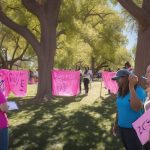
Alabama Transgender State of Affairs

Alabama Transgender State of Affairs
Table of Contents
ToggleWhy is Alabama’s legislative landscape regarding gender-affirming healthcare facing significant legal challenges?
Alabama’s legislative landscape is under scrutiny due to the enforcement of a ban on gender-affirming care for transgender minors. The Alabama Law prohibits physicians from prescribing puberty blockers or hormones to individuals under 19, carrying severe penalties of up to a decade in prison. This ban has sparked significant legal challenges and has become a focal point in the larger trend of restrictions on gender-affirming care across the United States.
The U.S. Department of Justice has taken action against Alabama’s law, alleging violations of the Equal Protection Clause. The Department seeks an immediate order to prevent the law from being enforced. Furthermore, the U.S. 11th Circuit Court of Appeals has lifted a lower court’s injunction against the ban, and the law is pending a full trial on its constitutionality.
This legal battle has considerable implications for the access to care for transgender individuals, and its outcome will significantly impact transgender rights and healthcare access. As states have enacted laws regarding gender-affirming care, the legal challenges against Alabama’s ban highlight the urgent need for understanding, empathy, and support for the transgender community in accessing essential healthcare services.
Alabama’s ban on gender-affirming care for minors has created significant healthcare challenges for transgender individuals under 19, criminalizing essential medical treatments and impacting their access to necessary care. This restrictive legislation has led to a lack of rights for minors seeking gender-affirming medical care, causing distress and anxiety for transgender youth in Alabama.
The ban not only limits access to crucial medical care but also perpetuates a harmful environment for transgender minors, who are already at a higher risk for mental health issues and suicide. The Justice Department has intervened, recognizing the importance of upholding the rights of transgender minors to access appropriate medical care. Legal challenges and advocacy efforts are underway to address these healthcare challenges and ensure that transgender youth in Alabama can receive the medical care they need.
| Rights | Department | Minors | Court |
|---|---|---|---|
| Upholding | Justice | Gender-affirming treatments | Legal Challenges |
| Access | Intervention | Healthcare Challenges | Advocacy Efforts |
The table above illustrates the interconnectedness of rights, the Justice Department’s intervention, the impact on minors, and the ongoing legal and advocacy efforts to address the healthcare challenges faced by transgender youth in Alabama.
The ban on gender-affirming healthcare for minors in Alabama has raised significant concerns about discrimination and the lack of legal protections for transgender youth.
The state enforces a felony ban on gender-affirming health care for minors, including puberty blockers or hormones, with penalties of up to a decade in prison for physicians. This has prompted legal challenges and national implications for transgender rights and healthcare access.
The U.S. Department of Justice has intervened, challenging the law as a violation of the Equal Protection Clause, and has urged a court order to prevent the law from going into effect.
Advocacy groups such as the National Center for Lesbian Rights and the Human Rights Campaign have expressed concerns about the significant harm this ban will cause to transgender adolescents in Alabama and beyond.
These legal battles have drawn attention to the need for adequate legal protections for transgender minors and have sparked discussions about the rights and well-being of transgender youth in the state and beyond.
Societal acceptance and visibility of transgender individuals is crucial for fostering understanding and inclusivity within communities. The recent ban on gender-affirming health care for minors in Alabama has brought national attention to the challenges faced by trans youth. Alabama enforces a ban on physicians prescribing puberty blockers or hormones to transgender individuals under 19, making it a felony with severe penalties.
However, U.S. District Judge Liles C. Burke has stated that Alabama provided no credible evidence to support the claim that gender-affirming treatments are experimental. This stance has been supported by advocacy groups such as the National Center for Lesbian Rights and the Human Rights Campaign.
The ban on gender-affirming care for minors has sparked legal challenges and criticism from medical experts, the Biden administration, and the U.S. Department of Justice, who argue that it infringes on the rights and well-being of transgender adolescents. The visibility of these legal battles and the associated challenges faced by the transgender community in Alabama underscores the importance of societal acceptance and understanding of gender identity.
As these issues continue to unfold, it’s crucial for communities to support the rights reserved for trans individuals and work towards creating an environment of acceptance and support.
Amid the ongoing legal challenges and criticism surrounding the ban on gender-affirming care for minors in Alabama, advocacy groups and medical experts are actively working to ensure the protection of transgender adolescents’ rights and access to essential healthcare.
The current state of affairs in Alabama has prompted a surge in advocacy efforts aimed at addressing the discriminatory ban on gender-affirming care for minors. Here’s what’s happening:
Advocacy groups are engaged in legal battles, challenging the ban on gender-affirming care for minors. They’re working to highlight the potential harm and the violation of constitutional rights posed by the ban, which makes it a felony for physicians to provide such care, carrying penalties of up to ten years in prison.
Organizations are advocating for policy changes at both the state and federal levels to protect transgender minors’ access to essential healthcare. They’re working to raise awareness about the importance of gender-affirming care and its positive impact on the well-being of transgender adolescents.
Advocacy groups and medical experts are conducting educational campaigns to dispel misinformation about gender-affirming care for minors. They’re providing accurate information to the public, policymakers, and healthcare professionals to foster understanding and support for transgender adolescents’ healthcare needs.
In Alabama, individuals can legally change their gender by filing a Verified Petition with the Probate Court in their jurisdiction of residence. There are specific criteria and eligibility requirements for granting a name change, and the process can be complex.
Seeking legal counsel or support from organizations specializing in transgender rights can provide valuable assistance in navigating this process. It’s important to stay informed about any legal challenges or changes related to gender identity rights in the state.
Yes, lawmakers in Alabama did vote to ban medical care for transgender youth. The law prohibits physicians from prescribing puberty blockers or hormones to transgender individuals under 19, making it a felony to do so.
This has sparked legal challenges and criticism for lack of evidence. The U.S. Department of Justice has also challenged the law, stating it violates the Equal Protection Clause and discriminates against transgender youth.
The state of transgender rights in Alabama remains a battleground for equality and access to healthcare. The discriminatory laws and lack of legal protections continue to impact the transgender community, but advocacy efforts are ongoing.
Like a storm on the horizon, the outcome of legal challenges and societal acceptance will shape the future for transgender individuals in Alabama. It’s a time for empathy, education, and support for those fighting for their rights.
 Activism and ChangeJanuary 11, 2026The Truth About Trans-Inclusive Restrooms: Evidence vs. Outrage
Activism and ChangeJanuary 11, 2026The Truth About Trans-Inclusive Restrooms: Evidence vs. Outrage Activism and ChangeJanuary 9, 2026Backlash Grows After News Host Mocks Mother Who Died in ICE Custody
Activism and ChangeJanuary 9, 2026Backlash Grows After News Host Mocks Mother Who Died in ICE Custody Featured PostsJanuary 9, 2026The Pressure to Pass: Deconstructing Society’s Gender Templates
Featured PostsJanuary 9, 2026The Pressure to Pass: Deconstructing Society’s Gender Templates Activism and ChangeJanuary 9, 2026Colorado Signature Drive Begins for Initiatives Targeting Transgender Youth
Activism and ChangeJanuary 9, 2026Colorado Signature Drive Begins for Initiatives Targeting Transgender Youth